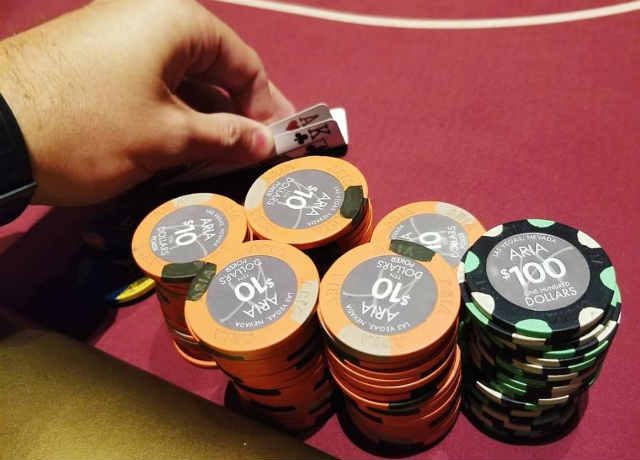
What is Bluffing in Poker and Why Do Players Bluff?
There are many different types of bluff and ways to bluff in poker, but the term bluffing generally means that you are overselling the hand that you have. You want the other players at the table to think you have a good hand, even though you may have nothing. A stone cold bluff is the most outrageous form of bluffing, and this is done when you don’t have a hand at all. Another time when bluffing occurs is when a player does not have a hand yet but is on a draw. This could mean that they need one more card to make a straight or a flush. If that player decides to bluff and gets called, they do have a possible escape route and a way of winning the hand.
Players have to bluff frequently if they are to win games. If poker was about seeing who had the best hand every time to determine the winner, it would be a game of luck. The reason why poker is a game of skill is because players can use bluffing and other methods to take down pots when they don’t have the winning cards. Bluffing is particularly important in tournament poker, because if players don’t make moves, their chips will diminish quickly as the blinds go up. Seeing as bluffing is an integral part of the game, good players need to work on their skills of reading other opponents and trying to ascertain when they could be lying about the strength of their hand. It’s this balance of bluffing and spotting bluffs which separates the professionals from the amateurs.
How and When to Bluff in Poker
For poker players to get to the top and be the best they need to train their brains, just as an athlete would work to strengthen their muscles. According to professional poker coach Jared Tendler, who specializes in poker mental game training, poker players need to have a sharp mind in order to do well. No matter what variant of poker you play, be it Texas Hold’em, Omaha, or 7 Card Stud, you need to understand how to bluff and when to do it. One of the most successful poker players ever, Doug Polk, says that if you never bluff in poker, the game will be unbeatable.
Firstly, it is important to know when the worst time to bluff is. The more people left in a hand, the more chance that someone is going to have a decent hand that they can call you with. But if it is just you against one other player and you sense weakness, that could be the prime opportunity. It is a good time to bluff if an opponent has been limping in on a hand and you have a potential draw. If you put in a big bet pre-flop and fire a continuation bet after missing the flop and still get called, it probably wouldn’t be a good idea to fire another bluff after the turn. The more poker you play, the more you will get a sense of when the right and wrong times to bluff are.
How to Tell if Your Opponent Could Be Bluffing
No matter what level of poker game you are in, there is no doubt that some bluffing will occur during the game. You need to understand that anyone could be bluffing at any time, and try to work out when they are. The first thing to watch out for is the variance of bet sizes at different times in the game. If, for instance, a player has been calling the minimum pre flop for a number of rounds and then suddenly decided to put in a large bet, this probably means they have something. But if they are putting in large bets frequently, it’s more than likely that they are bluffing a lot of the time. Expert players will try to vary their bets to make their play unpredictable, and when they do this it is much harder to spot a bluff.
Another way to determine whether a player is bluffing is to try to pick up on their psychological cues. According to Daniel Negreanu, an expert reader of tells, whenever anyone sits down at a poker table they begin to convey information to their opponents. This is done through body language, the way they speak, or even small things like the size of their pupils. Professionals often opt to cover their faces with sunglasses and hats to try to avoid being caught out. A simple tell to look out for is when a player glances down at their chips after checking their cards. This means they have something and they are working out how much to bet. If you want to stop other players from getting a read on you, try and keep your table talk to a minimum and be wary about your body language. Also, you should try and remember the body language that other players have displayed when they have had certain hands. This information will help you when assessing if someone is bluffing.
Bluffing is an essential and integral part of poker. If you don’t know how to bluff or can’t spot a bluff, you will never take your game to the highest level. Master bluffing and realise how much power you can have over your opponents at the poker table.
Support InfoStride News' Credible Journalism: Only credible journalism can guarantee a fair, accountable and transparent society, including democracy and government. It involves a lot of efforts and money. We need your support. Click here to Donate
